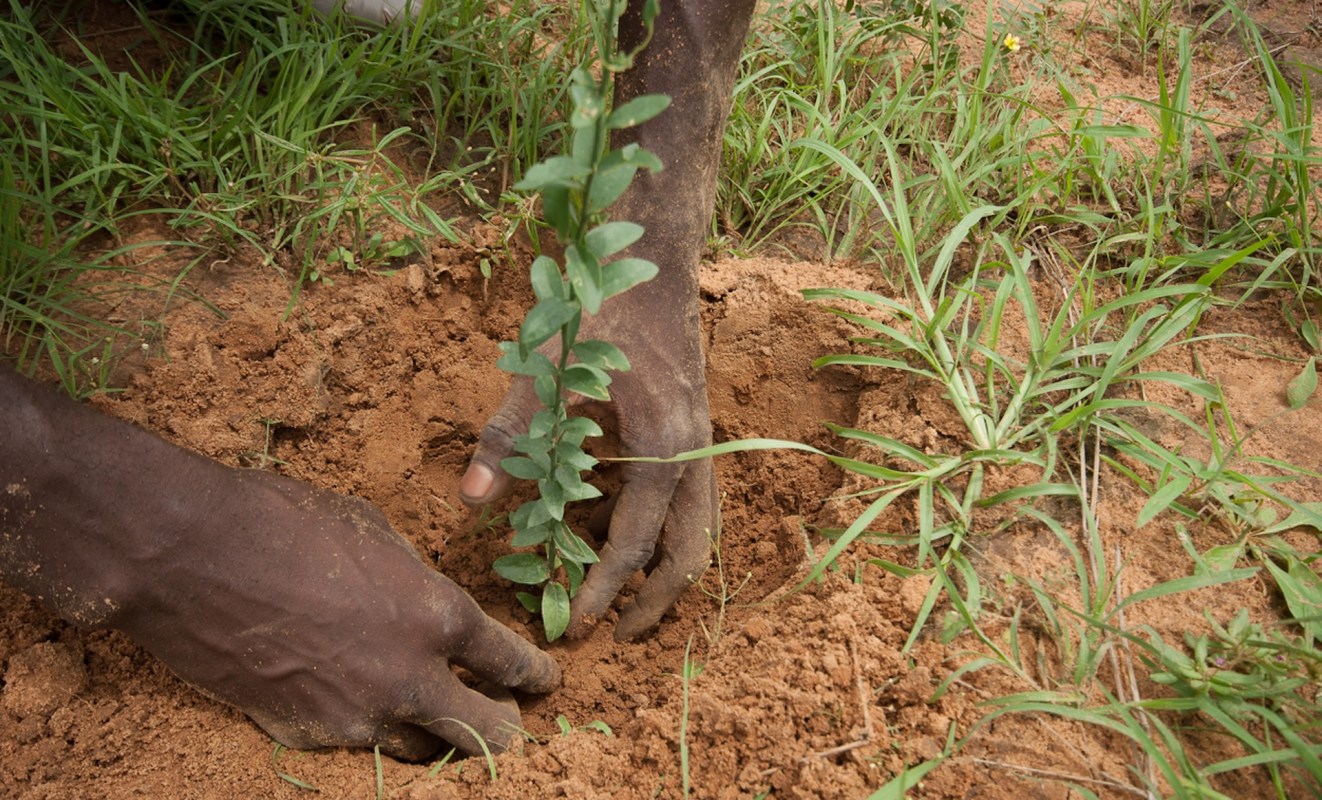When Enock Twagirayesu's family fled Burundi because of war, they settled, like many refugees do, in Uganda.
The East African country has welcomed hundreds of thousands of refugees from neighboring countries, some of whom are given a plot of land once they are registered to build homes and grow plants and food.
Often these families need to use what the land provides to survive, and at the Nakivale Refugee Settlement, that meant cutting down trees for the sake of cooking fuel.
However, when Twagirayesu noticed that local women had begun to burn roots for fuel because of the lack of trees in a once-wide forest, he began planting new trees to ensure not only their own survival, but also the rebirth of the forest.
"We saw that in the days to come, when the trees are finished, we will also be finished," he told the Associated Press. "Because if there are no trees to be used for cooking even the people cannot survive."
Those early actions spawned a greater collective effort, and now the Nakivale Green Environment Association is reforesting the area that offered safe shelter to thousands upon arrival.
Now, the Nsamizi Training Institute for Social Development is offering support, with the goal to help Twagirayesu and his cohorts plant 300,000 trees a year.
The group had some initial concerns, though, thinking their actions might not be appreciated by local authorities, who wanted to protect the mature woodlots. For refugees, the fear of being sent back to war-torn or naturally devastated areas is not an option they want to consider.
"We got a problem because some people were saying that when they plant trees, they will be chased away," Twagirayesu told the Associated Press. "Teaching people to plant trees also became a war. But right now, after they saw us continue to plant trees, saw us getting firewood, they began to appreciate our work."
According to the AP, citing data from Global Forest Watch, Uganda has lost 13% of its tree cover since 2000, with deforestation a concern long before the arrival of refugees like Twagirayesu and his family.
Firewood is used by many in the country to cook, while charcoal is one material that is often exported. Meanwhile, illegal logging also depletes tree stock.
In addition to providing essential materials for the lives of refugees in Nakivale, tree cover helps to halt and divert floodwater, which accumulates when heavy rain falls in the area. With rising temperatures increasing the risk and intensity of extreme weather conditions like flooding, protection is vital for homes and community services.
"We hope that when we plant these trees it will help us to reduce on the running water that could affect our school, and our school gardens," deputy headteacher of the local school Racheal Kekirunga told the AP. "Especially our learning and teaching. When the rain is too heavy, you must wait until it reduces and then you go to class."
Join our free newsletter for cool news and cool tips that make it easy to help yourself while helping the planet.









